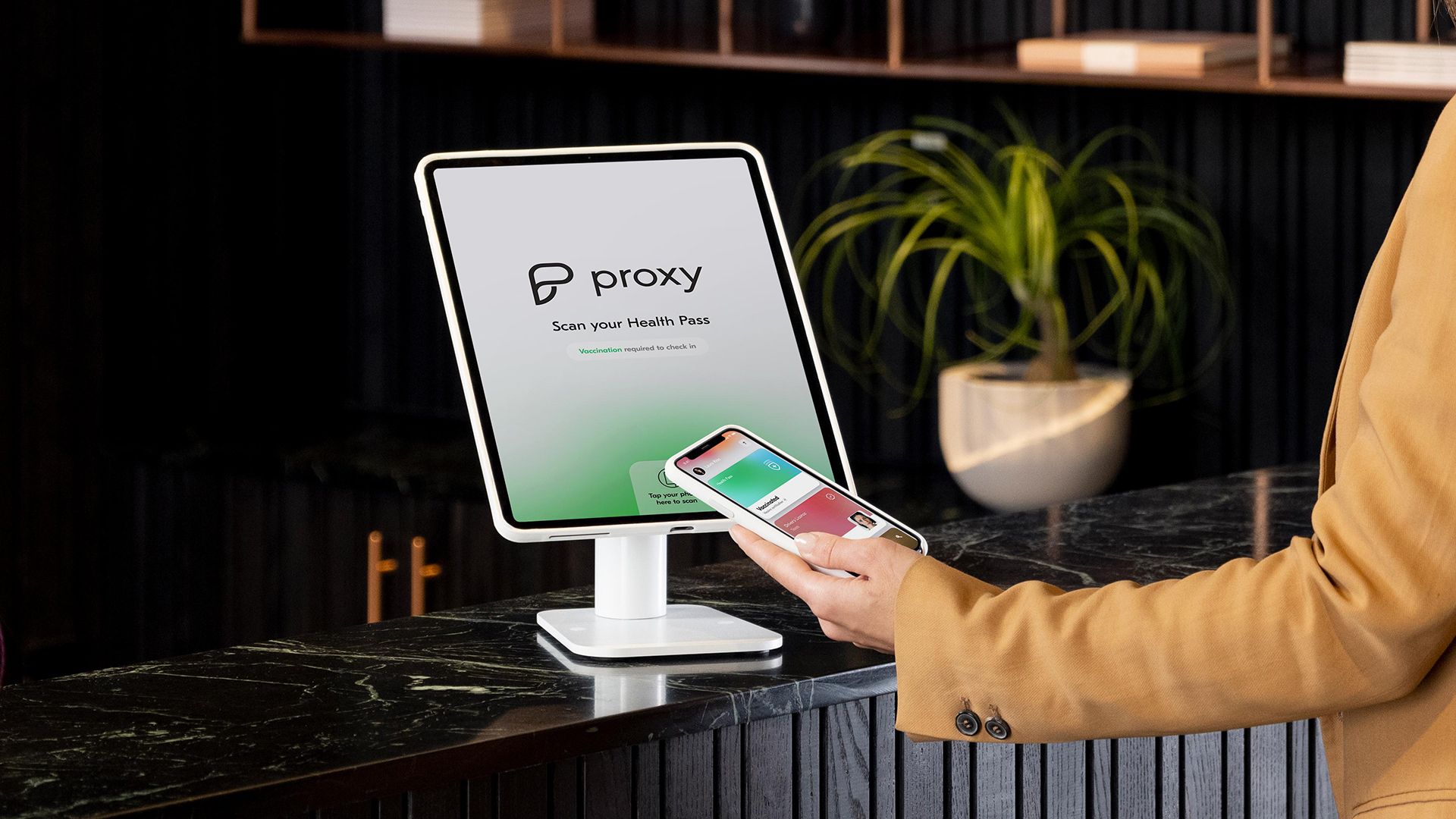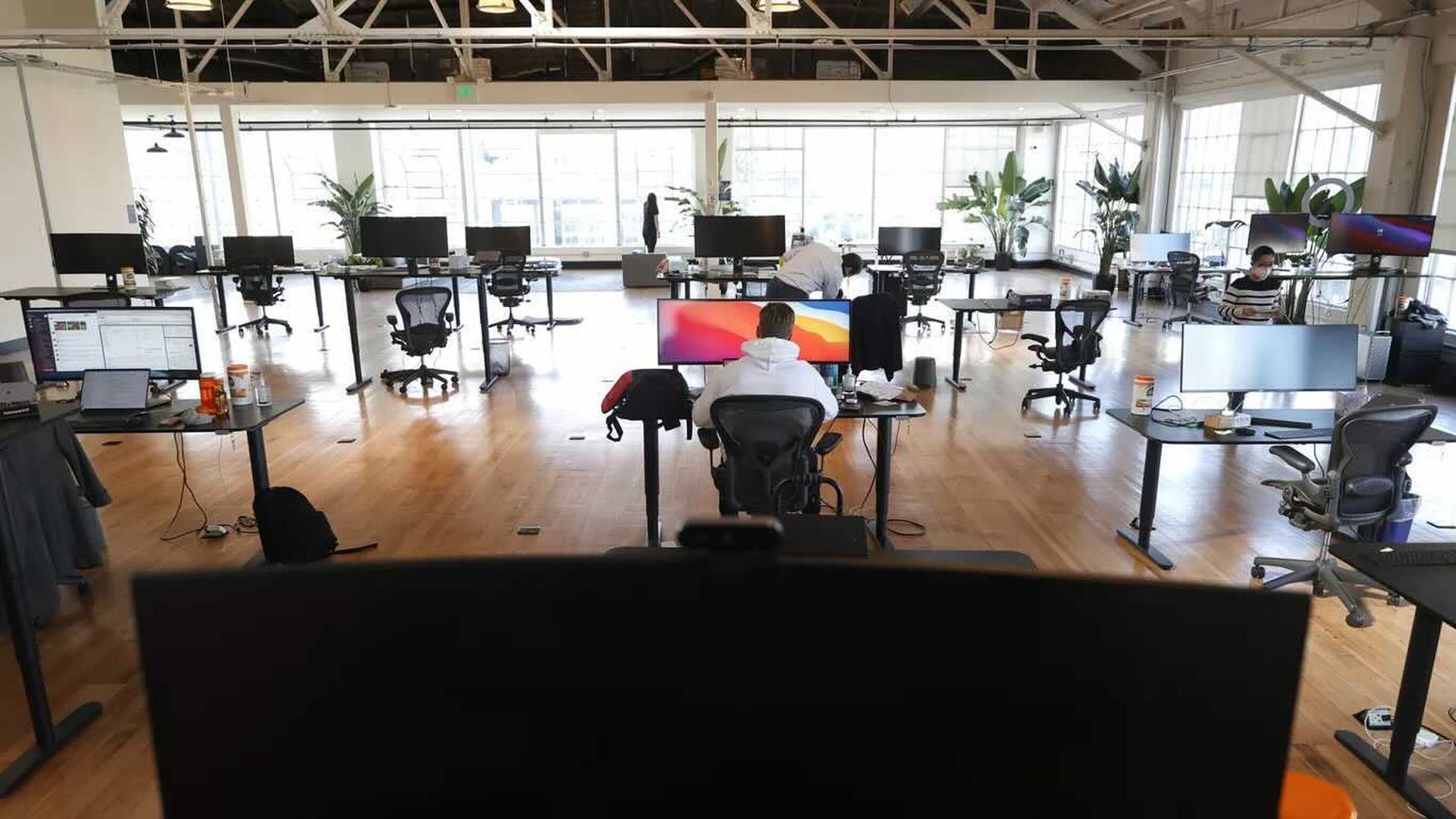| | | | | | | Presented By General Motors | | | | Axios What's Next | | By Bryan Walsh, Erica Pandey and Joann Muller ·Jun 24, 2021 | | Today we're looking at hybrid weddings, gender-neutral language in the aviation industry and more. "What was next" trivia: What island off the east coast of the North American mainland was discovered on this day in 1497 by the explorer John Cabot? (Hint: It has a really unimaginative name.) - Congrats to Vanessa Hills for the first correct, and complete, answer to yesterday's trivia question: On this day in 1868, Christopher Latham Sholes was awarded a patent for what invention? Answer: the typewriter (which, as Hills points out, he called the "type-writer").
- Send your answer, along with tips and feedback, to whatsnext@axios.com.
- Today's newsletter is 1,245 words, a 4.5-minute read.
| | | | | | 1 big thing: The future of weddings is hybrid |  | | | Illustration: Sarah Grillo/Axios | | | | The post-pandemic obsession with hybrid events and classrooms and offices is coming to weddings too, Erica Pandey writes. Why it matters: The average wedding in the U.S. costs about $30,000, and the biggest cost comes down to headcount. The pandemic ushered in a new way of celebrating the big day, with the nearest and dearest in attendance and the rest on Zoom — and that model will outlast the pandemic itself. "The pandemic really gave a lot of people the excuse to have the wedding they wanted, not the big fancy wedding that others wanted for them," says Caroline Creidenberg, founder of the wedding planning company Wedfuly, which now offers virtual and hybrid events. - "You can spend that extra per plate money on a nice photographer and not leave out mom's book club friends that are maybe really important to mom but not so important to the couple."
The hybrid option has other perks too. - Crowne Plaza Chennai Adyar Park, a hotel in India, has started offering a hybrid wedding package to accommodate the growing number of international couples who want to include guests from all over the world.
- "It's so much cheaper" from the guest's perspective too, Creidenberg says. "You don't have to book a hotel or buy a dress."
"When you do a huge wedding, you're trying to see everyone and talk to everyone, and you don't get to enjoy the moment," says Leah Michalos, who married her wife, Alison Beler, in a hybrid New Orleans wedding May 15 with about 20 guests in person and another 200 or so on Zoom. - Mask mandates were lifted in New Orleans by then, and Michalos and Beler could have had the big wedding they'd originally planned. "But in the end, this was perfect, and it was just what we needed," Michalos says. "It was just really nice to actually spend time with everyone that was there."
- To make the Zoom portion of the event special, the couple sent out white handkerchiefs in the invitations that were used, both live and over video, during traditional Greek and New Orleans dances at the wedding.
Read the rest. |     | | | | | | 2. Exclusive: New app will help employers verify workers' vaccine status |  | | | Photo: Proxy | | | | A tech company is announcing a new health app Thursday that it says will help employers bring their employees back to the office safely by verifying their COVID-19 vaccination status, Axios' Caitlin Owens writes. Why it matters: The app, or others like it, could be a sign of how employers can enforce vaccination requirements without relying on the honor system or hand-checking CDC vaccine cards. The big picture: Most employers aren't requiring or planning to require employees to be vaccinated against the coronavirus before entering the workplace, per a recent survey by insurance company Willis Towers Watson. - But among the 28% of respondents that said they are or are considering some kind of vaccine requirement, more than half will require proof.
How it works: The new app is being offered by Proxy, a company that sells identity technologies. The app will allow employees to verify their health status before entering the office — without sharing personal health information. - Employees download the app on their smartphone, upload photos of their vaccine cards and government-issued identification, and then tap their phone to an iPad serving as a check-in kiosk in the lobby or entrance to their office.
What they're saying: "People want to get back to normal, they want to get their businesses back to normal, but they also don't want to be increasing the risks to their employees," said Denis Mars, Proxy's co-founder and CEO. What we're watching: It's unknown what the market for an app like this is, and how employees react to it. - It's easy to foresee employers' handling of return-to-work falling along the same geographical and political lines as the rest of the country's pandemic response.
Read the rest. |     | | | | | | 3. Why human resources job postings are spiking |  Data: Indeed; Chart: Axios Visuals Human resources job postings are up 52.5% from their pre-pandemic baseline. That's far outpacing the average job posting bump of 30.5%, according to data from the jobs site Indeed, Erica writes. What's happening: Companies are beefing up their HR departments to navigate the return to work. Firms are facing two massive challenges in the next year or so: They need to figure out what balance of remote and in-person work functions best for their workforce, and they need to fill open roles as droves of workers quit in "the great resignation." - Both problems require HR professionals to solve.
- Companies are looking for remote work experts to help managers run hybrid or all-remote teams. And they're seeking experts in recruiting and onboarding to fill jobs quickly and seamlessly, says AnnElizabeth Konkel, an economist at Indeed.
The bottom line: Before the pandemic, the human resources department was on the automation chopping block. Now, as workplaces undergo rapid and dramatic transformations, it's essential. Read the rest. |     | | | | | | A message from General Motors | | Progress moves when everybody's in | | |  | | | | General Motors is investing $35 billion globally in EVs and AVs through 2025 and providing access to nearly 60,000 places to charge across the U.S. and Canada. Why it's important: By creating a seamless charging experience, GM's investment is electrifying the future. | | | | | | 4. Aviation hopes inclusivity can help fight gender bias |  | | | In the 1970s, Southwest Airlines flight attendants wore hot pants and go-go boots. Photo: Alan Band/Keystone/Getty Images | | | | "Stewardesses" became flight attendants decades ago. Now an FAA advisory panel is urging the rest of the aviation world to be more inclusive by adopting gender-neutral language, Joann Muller reports. Why it matters: Women and others in marginalized groups are underrepresented in aviation, contributing to a shortage of pilots and other professionals. Avoiding exclusionary language can help create a work environment in which all people feel welcome. - Plus, as drones and other new types of aircraft become more widely used, there's a growing opportunity to attract newcomers to the industry.
Flashback: Sexism has been prevalent in aviation for decades. - Women had to be young, attractive and unmarried to qualify as flight attendants during the 1950s and '60s. At Southwest Airlines in the early '70s, flight attendants even wore hot pants and go-go boots.
- Pilots were mostly groomed in the military. When the first class of female cadets arrived at the Air Force Academy in the mid-'70s, they were greeted by a huge sign over the entry that said, "Bring Me Men." (The sign was removed, then-cadet and now FAA administrator Steve Dickson noted in a recent speech.)
Driving the news: As part of a Biden administration push for more equity in the industry, the FAA in February asked its drone advisory committee for recommendations on how it could shift to gender-neutral language. Among the changes they recommended Wednesday: - "Airman" should become "aviator."
- "Cockpit" should become "flight deck."
- "Manmade obstacles" should be "structural obstacles."
- "Repairman" should become "technician."
- "Unmanned aerial system" should become "uncrewed aerial system" or — better yet — "drone system."
- "Unmanned traffic management" should be "UAS traffic management."
Read the rest. |     | | | | | | 5. Kickstarter's 4-day workweek |  | | | Photo: Justin Sullivan/Getty Images | | | | Kickstarter is planning to experiment with a four-day work week in an effort to offer workers more flexibility and additional time to spend on creative pursuits, Axios' Ina Fried reports. The big picture: Lots of tech companies are planning to offer flexibility around where employees work post-pandemic. Now some companies are also rethinking when people work. Driving the news: Kickstarter plans next year to test a four-day work week with some or all of its employees, though details of that remain to be figured out, including whether all workers will have the same schedule. What they're saying: Kickstarter CEO Aziz Hasan told Axios that he had toyed with the notion of a four-day week in the past b ut was motivated by the pandemic to actually give it a try. - "What we've been all living through the last 18 months, you feel this compression on your professional life, your personal life," Hasan said.
Read the rest. |     | | | | | | A message from General Motors | | Progress moves when everybody's in | | |  | | | | General Motors is investing $35 billion globally in EVs and AVs through 2025 and providing access to nearly 60,000 places to charge across the U.S. and Canada. Why it's important: By creating a seamless charging experience, GM's investment is electrifying the future. | | |  | | The tool and templates you need for more engaging team updates. | | | | | | Axios thanks our partners for supporting our newsletters. If you're interested in advertising, learn more here.
Sponsorship has no influence on editorial content. Axios, 3100 Clarendon Blvd, Suite 1300, Arlington VA 22201 | | | You received this email because you signed up for newsletters from Axios.
Change your preferences or unsubscribe here. | | | Was this email forwarded to you?
Sign up now to get Axios in your inbox. | | | | Follow Axios on social media:    | | | | | |









No comments:
Post a Comment